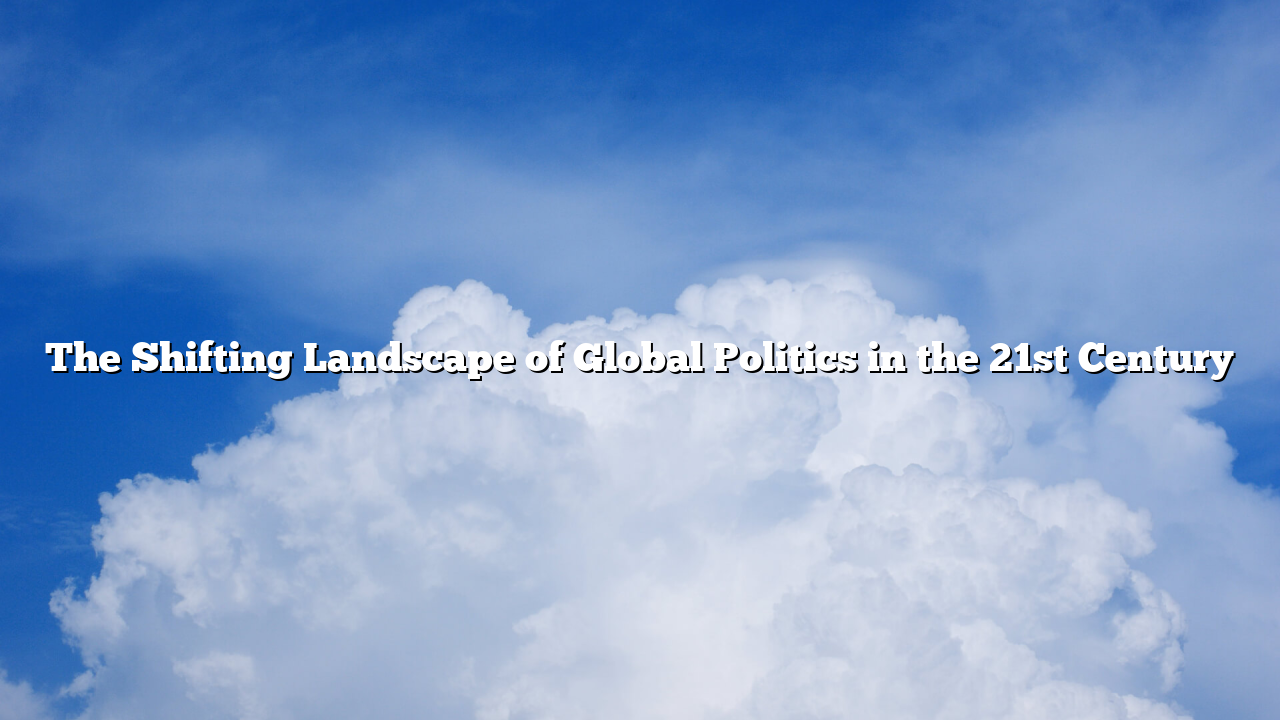In the 21st century, politics has undergone a profound transformation, influenced by rapid technological advancements, growing populist sentiments, and shifting global power dynamics. The traditional structures of political power are being challenged, not only by emerging leaders and ideologies but also by a more informed and connected global citizenry. These changes present both opportunities and challenges for democratic institutions worldwide.
One of the most significant drivers of political change today is technology. The rise of social media platforms has revolutionized how political information is disseminated and consumed. In the past, newspapers, radio, and television acted as gatekeepers of political discourse. Now, anyone with internet access can voice their opinion, mobilize support, or challenge authority. This has democratized political participation in many ways, but it has also led to the spread of misinformation and polarization. The viral nature of online content often rewards sensationalism over substance, weakening thoughtful debate and policy discussions.
Populism is another defining characteristic of modern politics. Across continents, populist leaders have gained traction by appealing directly to the emotions and frustrations of ordinary people. From the United States to Brazil, Italy to the Philippines, voters have increasingly gravitated toward candidates who position themselves as outsiders fighting against corrupt or disconnected elites. While this can lead to increased engagement and a renewed focus on previously ignored issues, it can also erode trust in institutions and democratic norms when populist rhetoric turns authoritarian.
Geopolitically, the balance of power is also shifting. The post-Cold War era, once dominated by a unipolar world led by the United States, is giving way to a multipolar global order. China’s economic and military rise, Russia’s assertiveness, and regional powers like India, Brazil, and Turkey seeking greater influence have complicated international diplomacy. The traditional Western-led alliances and institutions—such as NATO, the UN, and the EU—are being tested both externally and from within.
Climate change has also emerged as a central political issue. What was once considered primarily an environmental concern is now at the core of national security, economic policy, and international cooperation. Political parties worldwide are being forced to take clear stances on environmental issues, with voters—particularly younger generations—demanding action. The transition to green energy, carbon taxes, and sustainability policies are not only environmental decisions but also deeply political, influencing jobs, trade, and global partnerships.
Despite these shifts, democracy remains a vital and resilient system, but it faces serious threats. Disinformation campaigns, voter suppression, political violence, and erosion of judicial independence are rising concerns even in established democracies. The health of a political system depends on the strength of its institutions, the engagement of its citizens, and the willingness of its leaders to prioritize the public good over personal or partisan gain.
Political engagement among young people is growing, offering hope for more inclusive and forward-thinking leadership. Movements for racial justice, gender equality, LGBTQ+ rights, and indigenous sovereignty have become integral to political discussions around the world. These voices are reshaping what it means to participate in politics, pushing institutions to be more transparent, diverse, and accountable.
In conclusion, politics in the 21st century is more dynamic—and more volatile—than ever before. While Naga169 and movements have expanded participation, they have also introduced new risks. As nations navigate these uncertain waters, the challenge will be to preserve the core values of democracy while adapting to the realities of a changing world. The future of politics will be defined not just by the choices of leaders, but by the actions of citizens who demand better, fairer, and more responsive governance.
